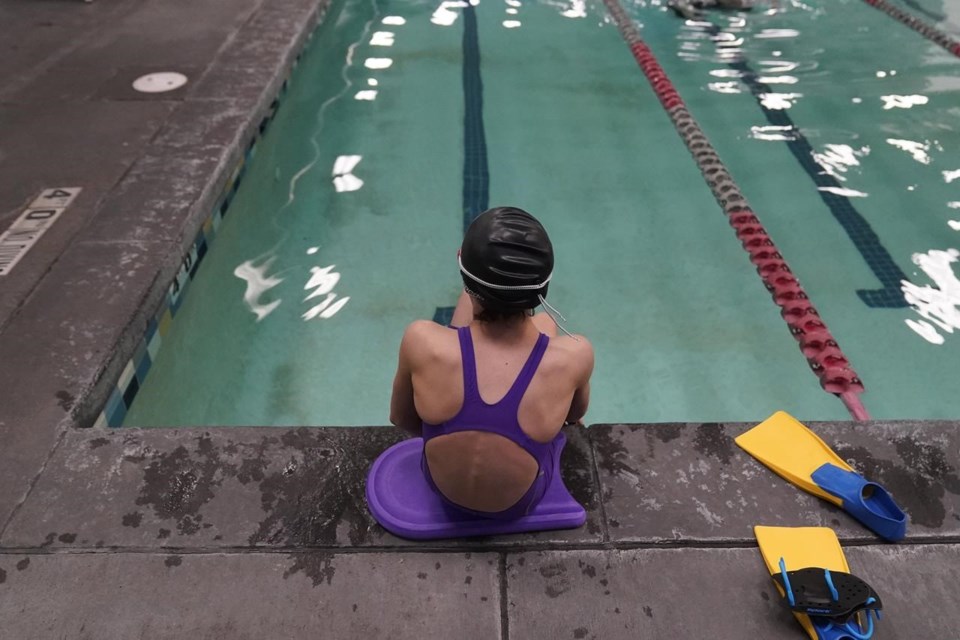SALT LAKE CITY (AP) — Transgender teenagers who are challenging a Utah law banning trans girls from playing on girls' sports teams can keep portions of their mental health records confidential after a state judge ruled Thursday that some details are irrelevant to the case.
Two student-athletes whose families sued over the 2022 state law were ordered in September by Judge Keith Kelly to give state attorneys access to the last seven years of their mental health records, as well as all documents related to medical transition and puberty.
Kelly temporarily blocked the state from enforcing the ban, which took effect last year after the Republican-controlled Legislature overrode Gov. Spencer Cox’s veto, while the court continues to assess its legality.
Cox drew national attention as one of the few Republican governors who pushed back against state lawmakers’ restrictions on transgender youth, warning that such bans target kids already at a high risk for suicide. Utah is one of more than a dozen states that have passed such bans.
Kelly ruled last August that transgender girls could return to athletic competition after hearing several hours of student testimony describing how exclusion from sports was causing them significant distress. He described the ban as “plainly unfavorable treatment” and said it must be put on pause to protect the girls from “irreparable harm” and a severe impact on their mental health.
But because the girls' “physical, mental and emotional circumstances” factored into his decision to grant the preliminary injunction, he also determined that their mental health records were relevant to the case.
His ruling Thursday does little to alleviate privacy concerns raised by the plaintiffs' attorneys, who argue the state should not have access to the deeply personal mental health records of children who have not waived their therapist-client privilege.
Only details concerning irrelevant third parties, certain isolated events and the students' deadnames, or the birth names that they no longer use, will remain redacted, Kelly said Thursday.
“These children should have the ability to speak freely in their therapy sessions without an intrusion into that privilege that exists between patients and providers,” Amy Whelan, an attorney for the plaintiffs, told The Associated Press after the hearing. “And the issues that they're discussing are really not at issue in a sports case."
Whelan said the next step is to work out internally with the state’s lawyers how those records can be used in court. Before defense attorneys begin taking depositions, the families' lawyers will outline what they think is and is not appropriate to ask the minor plaintiffs to try to minimize “any potential harm or stress that could result," she said.
Lawyers from the attorney general’s office, which represents the state, have argued they should have full access to the girls’ mental health records, including portions that might not seem relevant to the case, so they can assess whether the state law is responsible for the distress the girls have described. By centering their arguments around the alleged mental health impacts of the ban, defense attorney Jason Dupree argues the plaintiffs opened the door to a complete examination of their mental health history.
The attorney general’s office did not immediately respond to phone messages seeking comment on the outcome of Thursday’s hearing.
The girls' families argue in their lawsuit that categorical bans on transgender athletes single out their daughters for less favorable treatment than other girls. Their lawyers say the law treats a student’s transgender status as a proxy for athletic ability and fails to consider individual circumstances.
But supporters of the law say transgender athletes have inherent advantages and compromise fairness in girls’ sports.
There have been few cases of potential competitive advantages in K-12 sports in Utah and in other states passing similar bans.
With the ban on hold, a back-up plan for vetting transgender athletes has been met with similar criticism.
A commission of politically appointed experts from the athletic and medical fields can now decide on a case-by-case basis whether a transgender athlete's participation compromises fairness. Republican state lawmakers created the commission in another 2022 law as a fallback plan to be implemented in case of an injunction. The panel can review a child’s height and weight and whether they are taking puberty blocking drugs or hormones, which some critics say crosses a line.
Hannah Schoenbaum, The Associated Press



